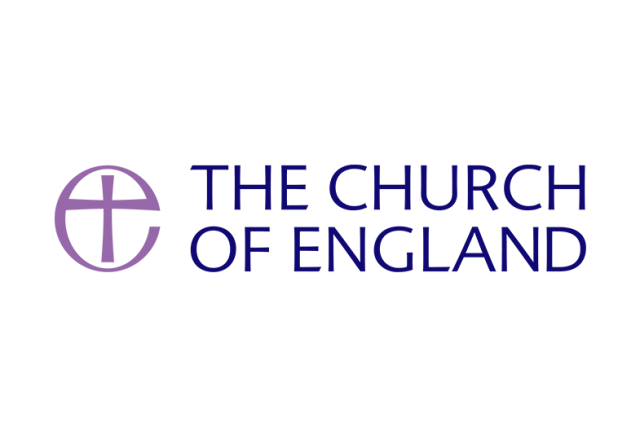
Whose Kingdom Come?
September 25, 2025
Watch Back: A Polyphonic God? Exploring Intercultural Mission
November 5, 2025As our annual conference draws near, and against the background of contemporary US politics, Bruce Rogers-Vaughn reflects on the theme of hope.
I was born in the United States in 1956, and have lived within its borders since. Yet I hardly recognize my country today. Masked agents from US Immigration and Customs Enforcement (ICE) have appeared in my vicinity, kidnapping and disappearing brown-skinned people. My 17-year-old twin boys, multi-racial with brown skin, have just begun driving on their own. My spouse and I have given them copies of their birth certificates to keep in their wallets, just in case. On September 10, Charlie Kirk, a far-right podcaster and self-avowed Christian nationalist, was fatally shot while speaking on a college campus. The following week one of the teachers at my sons’ high school was fired, simply for posting negative comments about Kirk on social media. A week prior to Kirk’s death, I received an email rescinding a months-long invitation to speak at a Christian university. The reason? One of the constituents of the school, in an online blog, observed that I am critical of capitalism. His conclusion was that I am a ‘communist’. Donors for the school contacted the administration, threatening to withhold funds if I were allowed to speak. I found myself pondering whether a Homeland Security agent might notice this mini-controversy, and what consequences could then ensue.
My personal experiences are insignificant compared to broader happenings in the United States. But they are indicators of the big picture. There is no room here to catalogue the cascade of events since Trump returned to office that document the extent of corruption, and the systematic efforts to erode democracy. But responses to Kirk’s murder are revealing. Trump is openly blaming his political opponents for Kirk’s death. He has designated ‘Antifa’ a terrorist organization. Since no such organization actually exists, this gives him cover to criminalize anyone he wishes. Last week the television talk show hosted by Jimmy Kimmel was ‘suspended indefinitely’ for comments he made—not about Kirk himself, but about Trump’s outrageous reactions. This goes far beyond violating Kimmel’s right to free speech. The chair of the Federal Communications Commission (FCC), Brendan Carr—appointed by Trump, and yet another Christian nationalist—publicly threatened the corporations governing Kimmel’s show. “This is a very, very serious issue right now for Disney,” Carr declared. “We can do this the easy way or the hard way. These companies can find ways to take action on Kimmel, or there is going to be additional work for the FCC ahead.” Disney caved. This is a blatant violation of the First Amendment of the Constitution of the USA. It has become unmistakable that the Trump administration is attempting to establish a Christian nationalist authoritarian regime. On September 19, speaking to reporters in the oval office, Trump asserted that any negative news coverage of him is ‘really illegal’. This is really bad.
Do not assume from all this that I am partial to the Democratic Party. To the contrary, I believe that liberalism functions as an apologetic for the capitalist status quo. As Nancy Fraser has cogently argued, the ‘progressive neoliberalism’ of the Democratic Party establishment set the stage for the ‘reactionary neoliberalism’ of the radical right. Liberals in my country much prefer Trump to the socialist-leaning members of their own party, because they are the beneficiaries and sponsors of the same billionaire class. Similar dynamics have been playing out in Britain, with Labour courting the power of large corporations. Images come to mind of Trump and Keir Starmer playing footsie in Buckinghamshire on September 18. In both nations it is now difficult to imagine a past to which we would wish to return. Any path forward will require moving beyond tired debates between conservatism and liberalism. We do not yet see that path.
In brief, we live in an age of overwhelming despair. I find myself returning to the words of the great philosopher of hope, Gabriel Marcel, who asserted: “There is no hope where the temptation to despair does not exist.” Despair is the precondition for hope. And there are signs of hope. Even in the USA a vibe shift is underway. Zohran Mamdani is very likely to win the mayoral race in New York City—despite being Muslim, brown, and a democratic socialist. Meanwhile, Bernie Sanders is crisscrossing the country on his ‘Fight Oligarchy Tour’, greeting enthusiastic crowds even in areas that voted heavily for Trump. And in Texas something is happening that probably has not received much attention in the UK. James Talarico, a young Presbyterian seminarian, has been drawing crowds across his state, arguing for policies that actually help workers and average citizens. He currently serves in the Texas state legislature, and just announced he is running as a candidate for the US Senate. Talarico regularly points out that the Warrior Jesus extolled by right-wing ideologues and Christian nationalists is completely opposite to the Jesus we see in the Gospels. Finally, let’s not forget that all this is occurring against the backdrop of Trump’s plummeting popularity. The crazy authoritarian gambits you hear about are serious, but are also signs of panic.
A better future, however, is far from inevitable. That said, there are tender shoots of solidarity emerging from this decomposing empire. The struggle will be long. Someday Trump will be gone, but the Christian nationalism that enabled him will remain a force in the United States, where it has been developing since the early 1900s. Breaking its spell, and that of neoliberalism, may require a spiritual awakening, one that will likely include more Christians like James Talarico, calling us to an encounter with the Jesus of the Gospels. That Jesus reminds us that hope begins in things as small as a mustard seed: “It is the smallest of all the seeds, yet when full-grown it is the largest of plants. It becomes a large bush, and the birds of the sky come and dwell in its branches.” The noise in my country is deafening. But sometimes, when I still my heart and attune my ears, I can almost hear those birds singing.
Bruce Rogers-Vaughn is a Baptist Minister, a psychotherapist, and author of ‘Caring for Souls in a Neoliberal Age’ (Palgrave, 2019)





1 Comment
Thank you so much for this. I found it both informative and inspiring.